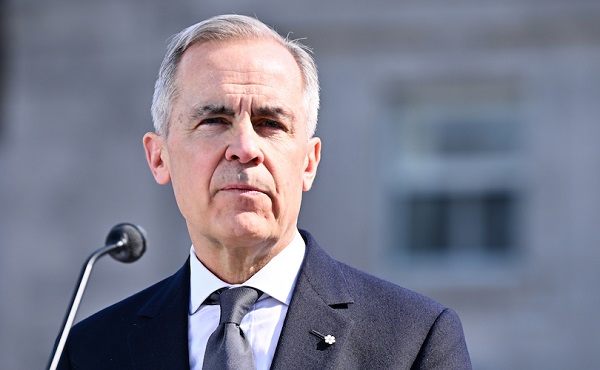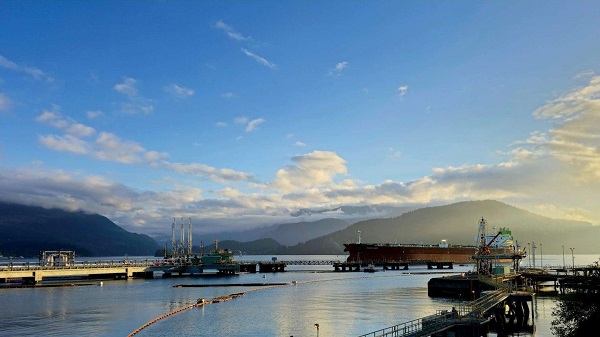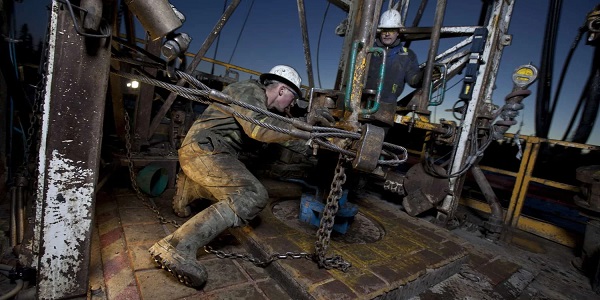Business
Mark Carney admits he may have to recuse himself on certain matters due to conflicts of interest

From LifeSiteNews
After lashing out at a reporter who pressed him about his investment holdings, Prime Minister Mark Carney has since admitted he will “probably” have to recuse himself on certain governmental matters because of potential conflicts of interest.
Since taking office from Justin Trudeau a week ago, Carney on Tuesday admitted that he will “probably” have to recuse himself from certain governmental matters due to potential conflicts of interest. The prime minister made the concession shortly after lashing out at a reporter when asked whether his large private investment holdings present an ethical issue.
During a Tuesday press conference in Canada’s Arctic, Carney was asked directly if he would have to recuse himself from certain governmental matters in a similar way as to what was required by former Liberal Prime Minister Paul Martin.
“Yes. We are having discussions, and a trust has been created,” he answered, adding that “along with the Ethics Commissioner, probably some screens will be put in place.”
Carney said that his “assets” have been put in a “blind trust well in advance of the requirements.”
“So they’ve been disposed of. But what happens is that there’s a discussion with the Ethics Commissioner for certain screens around certain issues, and that’s a process that is underway,” he added.
“It’s a natural process, and of course, it’s part of the way our system works. And I very much respect the system and those screens become public as they’re developed.”
He was then asked why he did not disclose any potential conflicts of interest in a forthcoming manner. He said this was a question for the “Ethics Commissioner if there is anything that has a major impact, then it’s clear there will be a screen.”
“I can say we are working quickly. I’m working quickly when it comes to those issues.”
Carney’s Tuesday statements came shortly after he lashed out at Canadian Broadcasting Corporation reporter Rosemary Barton when the journalist pressed him on his assets. Barton said she found it “very difficult to believe” there were no possible conflicts of interest now that he is prime minister.
Carney seemed to become visibly annoyed with the line of questioning, telling Barton to “look within herself.”
Before becoming prime minister, Carney worked for Brookfield Asset Management and the United Nations special envoy on climate action.
Recent reports claim that Carney held $6.8 million in Brookfield Asset Management Ltd. stock options before quitting the company.
Conservative leader calls out Carney’s potential conflicts of interest
Responding to the chatter, Conservative Party leader Pierre Poilievre told reporters that the prime minster is “trying to distract from his many scandals and conflicts of interest as well as his disastrous record as Justin Trudeau’s economic advisor by talking about Trump.”
“He’s the guy who sold out to Trump,” said Poilievre, adding that six days after U.S. President Donald Trump “threatened Canada” with tariffs “to steal our jobs,” Carney “announced to Brookfield shareholders that he would move his headquarters from Canada to New York.”
“And when you asked him about it, he lied to your face,” he added.
Poilievre said the Conservatives have this evidence “in writing and we proved it.”
“He sold out Canada. He put his profit ahead of our people and he did exactly what Donald Trump wanted. Never before have we had a prime minister so conflicted and compromised and yet so little scrutinized,” he added.
Carney, an admitted “elitist” and “globalist,” is reportedly due to call a federal election this weekend, just days after being installed as prime minister following the Liberal Party leadership race.
Business
US Energy Secretary says price of energy determined by politicians and policies


From the Daily Caller News Foundation
During the latest marathon cabinet meeting on Dec. 2, Energy Secretary Chris Wright made news when he told President Donald Trump that “The biggest determinant of the price of energy is politicians, political leaders, and polices — that’s what drives energy prices.”
He’s right about that, and it is why the back-and-forth struggle over federal energy and climate policy plays such a key role in America’s economy and society. Just 10 months into this second Trump presidency, the administration’s policies are already having a profound impact, both at home and abroad.
While the rapid expansion of AI datacenters over the past year is currently being blamed by many for driving up electric costs, power bills were skyrocketing long before that big tech boom began, driven in large part by the policies of the Obama and Biden administration designed to regulate and subsidize an energy transition into reality. As I’ve pointed out here in the past, driving up the costs of all forms of energy to encourage conservation is a central objective of the climate alarm-driven transition, and that part of the green agenda has been highly effective.
Dear Readers:
As a nonprofit, we are dependent on the generosity of our readers.
Please consider making a small donation of any amount here.
Thank you!
President Trump, Wright, and other key appointees like Interior Secretary Doug Burgum and EPA Administrator Lee Zeldin have moved aggressively throughout 2025 to repeal much of that onerous regulatory agenda. The GOP congressional majorities succeeded in phasing out Biden’s costly green energy subsidies as part of the One Big Beautiful Bill Act, which Trump signed into law on July 4. As the federal regulatory structure eases and subsidy costs diminish, it is reasonable to expect a gradual easing of electricity and other energy prices.
This year’s fading out of public fear over climate change and its attendant fright narrative spells bad news for the climate alarm movement. The resulting cracks in the green facade have manifested rapidly in recent weeks.
Climate-focused conflict groups that rely on public fears to drive donations have fallen on hard times. According to a report in the New York Times, the Sierra Club has lost 60 percent of the membership it reported in 2019 and the group’s management team has fallen into infighting over elements of the group’s agenda. Greenpeace is struggling just to stay afloat after losing a huge court judgment for defaming pipeline company Energy Transfer during its efforts to stop the building of the Dakota Access Pipeline.
350.org, an advocacy group founded by Bill McKibben, shut down its U.S. operations in November amid funding woes that had forced planned 25 percent budget cuts for 2025 and 2026. Employees at EDF voted to form their own union after the group went through several rounds of budget cuts and layoffs in recent months.
The fading of climate fears in turn caused the ESG management and investing fad to also fall out of favor, leading to a flood of companies backtracking on green investments and climate commitments. The Net Zero Banking Alliance disbanded after most of America’s big banks – Goldman Sachs, J.P. Morgan Chase, Citigroup, Wells Fargo and others – chose to drop out of its membership.
The EV industry is also struggling. As the Trump White House moves to repeal Biden-era auto mileage requirements, Ford Motor Company is preparing to shut down production of its vaunted F-150 Lightning electric pickup, and Stellantis cancelled plans to roll out a full-size EV truck of its own. Overall EV sales in the U.S. collapsed in October and November following the repeal of the $7,500 per car IRA subsidy effective Sept 30.
The administration’s policy actions have already ended any new leasing for costly and unneeded offshore wind projects in federal waters and have forced the suspension or abandonment of several projects that were already moving ahead. Capital has continued to flow into the solar industry, but even that industry’s ability to expand seems likely to fade once the federal subsidies are fully repealed at the end of 2027.
Truly, public policy matters where energy is concerned. It drives corporate strategies, capital investments, resource development and movement, and ultimately influences the cost of energy in all its forms and products. The speed at which Trump and his key appointees have driven this principle home since Jan. 20 has been truly stunning.
David Blackmon is an energy writer and consultant based in Texas. He spent 40 years in the oil and gas business, where he specialized in public policy and communications.
Business
Oil tanker traffic surges but spills stay at zero after Trans Mountain Expansion

From the Canadian Energy Centre
Bigger project maintains decades-long marine safety record
The Trans Mountain system continues its decades-long record of zero marine spills, even as oil tanker traffic has surged more than 800 per cent since the pipeline’s expansion in May 2024.
The number of tankers calling at Trans Mountain’s Westridge Marine Terminal in the Port of Vancouver in one month now rivals the number that used to go through in one year.
A global trend toward safer tanker operations
Trans Mountain’s safe operations are part of a worldwide trend. Global oil tanker traffic is up, yet spills are down, according to the International Tanker Owners Pollution Federation, a London, UK-based nonprofit that provides data and response support.
Transport Canada reports a 95 per cent drop in ship-source oil spills and spill volumes since the 1970s, driven by stronger ship design, improved response and better regulations.
“Tankers are now designed much more safely. They are double-hulled and compartmentalized to mitigate spills,” said Mike Lowry, spokesperson for the Western Canada Marine Response Corporation (WCMRC).
WCMRC: Ready to protect the West Coast

One of WCMRC’s new response vessels arrives in Barkley Sound. Photo courtesy Western Canada Marine Response Corporation
From eight marine bases including Vancouver and Prince Rupert, WCMRC stands at the ready to protect all 27,000 kilometres of Canada’s western coastline.
Lowry sees the corporation as similar to firefighters — training to respond to an event they hope they never have to see.
In September, it conducted a large-scale training exercise for a worst-case spill scenario. This included the KJ Gardner — Canada’s largest spill response vessel and a part of WCMRC’s fleet since 2024.
“It’s part of the work we do to make sure everybody is trained and prepared to use our assets just in case,” Lowry said.
Expanding capacity for Trans Mountain

The K.J. Gardner is the largest-ever spill response vessel in Canada. Photo courtesy Western Canada Marine Response Corporation
WCMRC’s fleet and capabilities were doubled with a $170-million expansion to support the Trans Mountain project.
Between 2012 and 2024, the company grew from 13 people and $12 million in assets to more than 200 people and $213 million in assets.
“About 80 per cent of our employees are mariners who work as deckhands, captains and marine engineers on our vessels,” Lowry said.
“Most of the incidents we respond to are small marine diesel spills — the last one was a fuel leak from a forest logging vessel near Nanaimo — so we have deployed our fleet in other ways.”
Tanker safety starts with strong rules and local expertise

Tanker loading at the Westridge Marine Terminal in the Port of Vancouver. Photo courtesy Trans Mountain Corporation
Speaking on the ARC Energy Ideas podcast, Trans Mountain CEO Mark Maki said tanker safety starts with strong regulations, including the use of local pilots to guide vessels into the harbour.
“On the Mississippi River, you have Mississippi River pilots because they know how the river behaves. Same thing would apply here in Vancouver Harbour. Tides are strong, so people who are familiar with the harbor and have years and decades of experience are making sure the ships go in and out safely,” Maki said.
“A high standard is applied to any ship that calls, and our facility has to meet very strict requirements. And we have rejected ships, just said, ‘Nope, that one doesn’t fit the bill.’ A ship calling on our facilities is very, very carefully looked at.”
Working with communities to protect sensitive areas
Beyond escorting ships and preparing for spills, WCMRC partners with coastal communities to map sensitive areas that need rapid protection including salmon streams, clam beds and culturally important sites like burial grounds.
“We want to empower communities and nations to be more prepared and involved,” Lowry said.
“They can help us identify and protect the areas that they value or view as sensitive by working with our mapping people to identify those areas in advance. If we know where those are ahead of time, we can develop a protection strategy for them.”
-

 MAiD2 days ago
MAiD2 days agoFrom Exception to Routine. Why Canada’s State-Assisted Suicide Regime Demands a Human-Rights Review
-

 Alberta2 days ago
Alberta2 days agoAlberta Sports Hall of Fame Announces Class of 2026 Inductees
-

 Business1 day ago
Business1 day agoCanada’s climate agenda hit business hard but barely cut emissions
-

 Business2 days ago
Business2 days agoCarney government should privatize airports—then open airline industry to competition
-

 Business21 hours ago
Business21 hours agoCarney’s Toronto cabinet meetings cost $530,000
-

 Business2 days ago
Business2 days agoIs Carney Falling Into The Same Fiscal Traps As Trudeau?
-

 Alberta2 days ago
Alberta2 days agoCarney’s pipeline deal hits a wall in B.C.
-

 Artificial Intelligence1 day ago
Artificial Intelligence1 day agoAI is accelerating the porn crisis as kids create, consume explicit deepfake images of classmates











